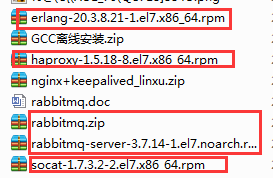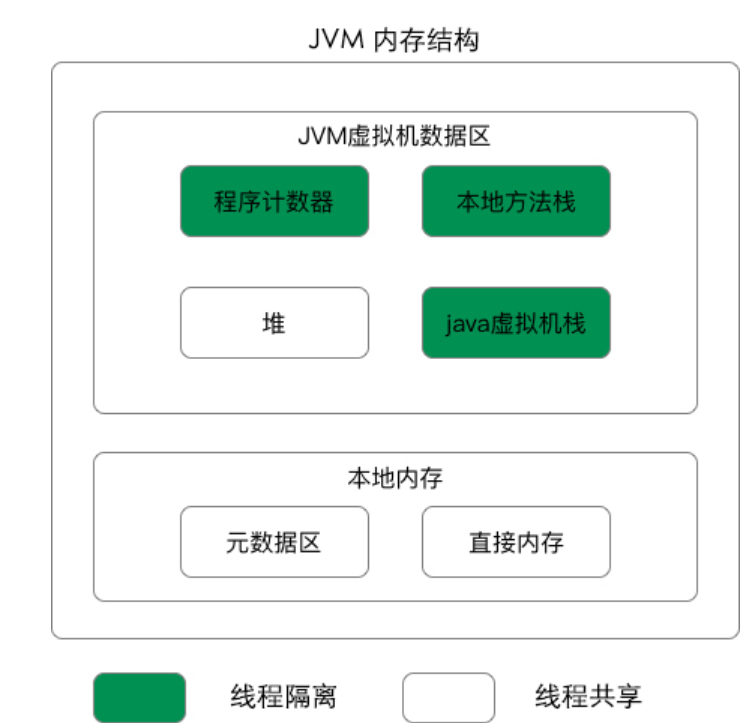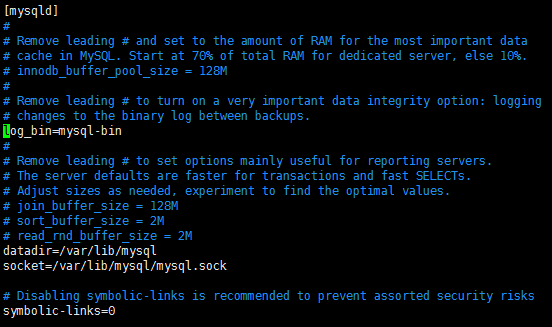rpm本地打包之spec文件(linux)
rpm本地打包之spec文件(linux)
rpm本地打包的回顾
- 在Linux之rpm本地打包中分析了rpm的常用指令、rpmbuild的常用命令以及参数的配置说明,详细情况请进入链接详细查看。接下来重点是分析spec文件。
spec文件
- 能够熟悉在以上链接中的操作命令以及配置参数的含义,管理日常的rpm软件包也就不成问题了。
- 然而,随着linux操作系统越来越流行于世界各地,越来越多的开发者更喜欢采用RPM格式来发布自己的软件包。那么RPM软件包是怎么样制作的了?对于大多数的开发者来说还是比较陌生的。
- 其实,制作RPM软件包并不是一件复杂的工作,其中最为关键在于编写
SPEC软件包描述文件。要想制作一个rpm软件包就必须写一个软件包描述文件(SPEC)。这个文件中包含了软件包的诸多信息,如软件包的名字、版本、类别、说明摘要、创建时要执行什么指令、安装时要执行什么操作、以及软件包所要包含的文件列表等等。 - 描述文件如下:
文件头:
- 一般的spec文件头包含以下几个域:
Name:
- 软件包的名字,最终RPM软件包是用该名字与版本号,释出号及体系号来命名软件包的。
Name(example):
Name: python-django-horizon
Epoch:
- 软件包的系列,也就是软件包的体系号,表示软件包的系列
Epoch(example):
Epoch: 1
Version:
- 软件包的版本号。仅当软件包比以前有较大改变时才增加版本号。
Version(example):
Version: 4.0.2
Release:
- 软件包释出号。一般我们对该软件包做一些小的补丁的时候就应该释出号出1。
Relase(example):
Release: 4.0.2
注意: 其中
Epoch表示了rpm包的新旧,优先级依次降低,打出的rpm包也是以Release
${package}-${Version}-${Release}命名
Summary:
- 一句话概括该软件包尽量多的信息。
Summary(example):
Summary: Django application for talking to Openstack
Group:
- 软件包所属类别,具体类别有:
* `Amusements/Games` (娱乐/游戏)* `Amusements/Graphics`(娱乐/图形)* `Applications/Archiving` (应用/文档)* `Applications/Communications`(应用/通讯)* `Applications/Databases` (应用/数据库)* `Applications/Editors` (应用/编辑器)* `Applications/Emulators` (应用/仿真器)* `Applications/Engineering` (应用/工程)* `Applications/File` (应用/文件)* `Applications/Internet` (应用/因特网)* `Applications/Multimedia`(应用/多媒体)* `Applications/Productivity` (应用/产品)* `Applications/Publishing`(应用/印刷)* `Applications/System`(应用/系统)* `Applications/Text` (应用/文本)* `Development/Debuggers` (开发/调试器)* `Development/Languages` (开发/语言)* `Development/Libraries` (开发/函数库)* `Development/System` (开发/系统)* `Development/Tools` (开发/工具)* `Documentation` (文档)* `System Environment/Base`(系统环境/基础)* `System Environment/Daemons` (系统环境/守护)* `System Environment/Kernel` (系统环境/内核)* `System Environment/Libraries` (系统环境/函数库)* `System Environment/Shells` (系统环境/接口)* `User Interface/Desktops`(用户界面/桌面)* `User Interface/X` (用户界面/X窗口)* `User Interface/X Hardware Support` (用户界面/X硬件支持)
Group(example):
Group: Development/Libraries
License:
- 软件包的发行许可证,也就是软件的授权方式,通常是GPL。
License(example)
# Code in horizon/horizon/utils taken from django which is BSDLicense: ASL 2.0 and BSD
URL:
- rpm软件包的主页链接地址。
URL(example):
URL: http://horizon.openstack.org/
Source:
- 源程序软件包的名称。例如:
horizon-9.0.1.tar.gz
> 注意: Source\[0-n\]是rpm软件包打包时的源代码
Source(example):
Source0: https://tarballs.openstack.org/horizon/horizon-%{upstream_version}.tar.gzSource2: openstack-dashboard-httpd-2.4.confSource3: python-django-horizon-systemd.conf# demo config for separate loggingSource4: openstack-dashboard-httpd-logging.conf# logrotate configSource5: python-django-horizon-logrotate.conf
BuildArch:
- 指编译的目标处理器架构,noarch标识不指定,但通常都是以
/usr/lib/rpm/marcros中的内容为默认值。
BuildArch(example):
BuildArch: noarch
BuildRequires:
- rpm软件包构建过程中所依赖的软件包名称,可以使用>=或者<=表示大于或者小于某一特定版本。
BuildRequires(example):
BuildRequires: python-setuptoolsBuildRequires: python-pbr >= 2.0.0BuildRequires: gitBuildRequires: python-six >= 1.10.0BuildRequires: gettext
Requires:
- rpm软件包所依赖的软件包名称,可以使用>=或者<=表示大于或者小于某一特定版本。
Requires(example):
Requires: python-djangoRequires: pytzRequires: python-six >= 1.10.0Requires: python-pbr
Provides:
- 指明rpm软件包提供一些特定的功能,以便其他rpm识别。
Provides(example):
# additional provides to be consistent with other django packagesProvides: django-horizon = %{epoch}:%{version}-%{release}
Obsoletes:
- 过时的,废弃的软件包
Obsoletes(example):
Obsoletes: python-django-openstack-auth < 4.0.0-1Obsoletes: python2-django-openstack-auth < 4.0.0-1
%description:
- rpm软件包的详细说明。
%description(example):
%descriptionHorizon is a Django application for providing Openstack UI components.It allows performing site administrator (viewing account resource usage,configuring users, accounts, quotas, flavors, etc.) and end useroperations (start/stop/delete instances, create/restore snapshots, viewinstance VNC console, etc.)
%package:
- 定义一个子包
%package(example):
%package -n openstack-dashboardSummary: Openstack web user interface reference implementationGroup: Applications/SystemRequires: httpd%description docDocumentation for the Django Horizon application for talking with Openstack
%files段:
- 本段是文件段,用于定义软件包所包含的文件,分为三类–说明文档(doc),配置文件(config)及执行程序,还可定义文件存取权限,拥有者及组别。
%files段(example):
%files -n openstack-dashboard -f dashboard.lang...
注意: 当需要去定义一个子包时,必须至少包含Summary;Group;%description选项,任何没有指定的选项将使用父包的选项,如版本等。
%package -n openstack-dashboard表示定义一个子包,子包的名称是openstack-dashboard
如果在%package中使用了-n选项,那么在使用%description时也要加上,如:%package -n openstack-dashboard以及它的%description -n openstack-dashboard
如果在%package中使用了-n选项,那么在使用%files时也要加上,如:%package -n openstack-dashboard以及它的%files -n openstack-dashboard -f dashboard.lang
%prep段:
- 这个段是预处理段,通常用来执行一些解开源程序包的命令,为下一步的编译安装作准备。%prep和下面的%build,%install段一样,除了可以执行RPM所定义的宏命令(以%开头)以外,还可以执行SHELL命令,命令可以有很多行,如我们常写的tar解包命令。
%prep段(example):
%prep%autosetup -n horizon-%{upstream_version} -S git# drop config snippetcp -p %{SOURCE4} .# customize default settings# WAS [PATCH] disable debug, move web rootsed -i "/^DEBUG =.*/c\DEBUG = False" openstack_dashboard/local/local_settings.py.examplesed -i "/^WEBROOT =.*/c\WEBROOT = '/dashboard/'" openstack_dashboard/local/local_settings.py.examplesed -i "/^.*ALLOWED_HOSTS =.*/c\ALLOWED_HOSTS = ['horizon.example.com', 'localhost']" openstack_dashboard/local/local_settings.py.examplesed -i "/^.*LOCAL_PATH =.*/c\LOCAL_PATH = '/tmp'" openstack_dashboard/local/local_settings.py.examplesed -i "/^.*POLICY_FILES_PATH =.*/c\POLICY_FILES_PATH = '/etc/openstack-dashboard'" openstack_dashboard/local/local_settings.py.examplesed -i "/^BIN_DIR = .*/c\BIN_DIR = '/usr/bin'" openstack_dashboard/settings.pysed -i "/^COMPRESS_PARSER = .*/a COMPRESS_OFFLINE = True" openstack_dashboard/settings.py# set COMPRESS_OFFLINE=Truesed -i 's:COMPRESS_OFFLINE.=.False:COMPRESS_OFFLINE = True:' openstack_dashboard/settings.py
%build段:
- 本段是建立段,所要执行的命令为生成软件包服务,如make 命令。
%build段(example):
%build# compile message stringscd horizon && django-admin compilemessages && cd ..cd openstack_dashboard && django-admin compilemessages && cd ..# Dist tarball is missing .mo files so they're not listed in distributed egg metadata.# Removing egg-info and letting PBR regenerate it was working around that issue# but PBR cannot regenerate complete SOURCES.txt so some other files wont't get installed.# Further reading why not remove upstream egg metadata:# https://github.com/emonty/python-oslo-messaging/commit/f632684eb2d582253601e8da7ffdb8e55396e924# https://fedorahosted.org/fpc/ticket/488echo >> horizon.egg-info/SOURCES.txtls */locale/*/LC_MESSAGES/django*mo >> horizon.egg-info/SOURCES.txt%{__python} setup.py build# compress css, js etc.cp openstack_dashboard/local/local_settings.py.example openstack_dashboard/local/local_settings.py# get it ready for compressing later in puppet-horizon%{__python} manage.py collectstatic --noinput --clear%{__python} manage.py compress --force# build docsexport PYTHONPATH=.sphinx-build -b html doc/source html# undo hackcp openstack_dashboard/local/local_settings.py.example openstack_dashboard/local/local_settings.py# Fix hidden-file-or-dir warningsrm -fr html/.doctrees html/.buildinfo
%install段:
- 本段是安装段,其中的命令在安装软件包时将执行,如make install命令。
%install段(example):
%install%{__python} setup.py install -O1 --skip-build --root %{buildroot}# drop httpd-conf snippetinstall -m 0644 -D -p %{SOURCE2} %{buildroot}%{_sysconfdir}/httpd/conf.d/openstack-dashboard.confinstall -d -m 755 %{buildroot}%{_datadir}/openstack-dashboardinstall -d -m 755 %{buildroot}%{_sharedstatedir}/openstack-dashboardinstall -d -m 755 %{buildroot}%{_sysconfdir}/openstack-dashboard# create directory for systemd snippetmkdir -p %{buildroot}%{_unitdir}/httpd.service.d/cp %{SOURCE3} %{buildroot}%{_unitdir}/httpd.service.d/openstack-dashboard.conf# Copy everything to /usr/sharemv %{buildroot}%{python_sitelib}/openstack_dashboard \%{buildroot}%{_datadir}/openstack-dashboardcp manage.py %{buildroot}%{_datadir}/openstack-dashboardrm -rf %{buildroot}%{python_sitelib}/openstack_dashboard# remove unnecessary .po filesfind %{buildroot} -name django.po -exec rm '{}' \;find %{buildroot} -name djangojs.po -exec rm '{}' \;# Move config to /etc, symlink it back to /usr/sharemv %{buildroot}%{_datadir}/openstack-dashboard/openstack_dashboard/local/local_settings.py.example %{buildroot}%{_sysconfdir}/openstack-dashboard/local_settingsln -s ../../../../..%{_sysconfdir}/openstack-dashboard/local_settings %{buildroot}%{_datadir}/openstack-dashboard/openstack_dashboard/local/local_settings.pymv %{buildroot}%{_datadir}/openstack-dashboard/openstack_dashboard/conf/*.json %{buildroot}%{_sysconfdir}/openstack-dashboardmv %{buildroot}%{_datadir}/openstack-dashboard/openstack_dashboard/conf/cinder_policy.d %{buildroot}%{_sysconfdir}/openstack-dashboardmv %{buildroot}%{_datadir}/openstack-dashboard/openstack_dashboard/conf/nova_policy.d %{buildroot}%{_sysconfdir}/openstack-dashboard%find_lang django --all-namegrep "\/usr\/share\/openstack-dashboard" django.lang > dashboard.langgrep "\/site-packages\/horizon" django.lang > horizon.lang# copy static files to %{_datadir}/openstack-dashboard/staticmkdir -p %{buildroot}%{_datadir}/openstack-dashboard/staticcp -a openstack_dashboard/static/* %{buildroot}%{_datadir}/openstack-dashboard/staticcp -a horizon/static/* %{buildroot}%{_datadir}/openstack-dashboard/staticcp -a static/* %{buildroot}%{_datadir}/openstack-dashboard/static# create /var/run/openstack-dashboard/ and own itmkdir -p %{buildroot}%{_sharedstatedir}/openstack-dashboard# create /var/log/horizon and own itmkdir -p %{buildroot}%{_var}/log/horizon# place logrotate config:mkdir -p %{buildroot}%{_sysconfdir}/logrotate.dcp -a %{SOURCE5} %{buildroot}%{_sysconfdir}/logrotate.d/openstack-dashboard
需要特别注意的是:
%install部分使用的是绝对路径,而%files使用的则是相对路径,虽然描述的是同一个地方,但是路径的书写格式千万不要出错%files -n openstack-dashboard -f dashboard.lang中的-f dashboard.lang分析: 生成一个名为dashboard.lang的文件,内容是所有的dashboard.mo,-f参数是将其后边接的文件合并到%files的文件列表。
开始把软件安装到虚拟的根目录中,本段是安装段,其中的命令在安装软件包时将执行,如: make install命令、cp、mv、install、ln。
%check段:
- rpm软件包的测试。
%check段(example):
%check%{__python2} manage.py test horizon --settings=horizon.test.settings
%post段:
- rpm软件包安装之后执行的脚本。
%post段(example):
%post -n openstack-dashboard# ugly hack to set a unique SECRET_KEYsed -i "/^from horizon.utils import secret_key$/d" /etc/openstack-dashboard/local_settingssed -i "/^SECRET_KEY.*$/{N;s/^.*$/SECRET_KEY='`openssl rand -hex 10`'/}" /etc/openstack-dashboard/local_settings# reload systemd unit filessystemctl daemon-reload >/dev/null 2>&1 || :
%postun段:
- rpm软件包卸载之后执行的脚本。
%postun段(example):
%postun# update systemd unit files%{systemd_postun}
课外知识: rpm还提供了一种信号机制:不同的操作会返回不同的信息,并放到默认变量$1中。
引用
0代表卸载,1代表安装,2代表升级
%doc段:
- 表示这是文档文件,因此如果安装时使用
--excludedocs将不会安装此类文件。
%doc段(example):
%doc README.rst openstack-dashboard-httpd-logging.conf
%dir段:
- 表示将dir目录路径下的内容打进rpm软件包里。
%dir段(example):
%dir %{_datadir}/openstack-dashboard/
%config(noreplace):
- 该配置文件不会覆盖已经存在文件(RPM包中文件会以
.rpmnew存在于系统,卸载时系统中的该配置文件会以.rpmsave保存下来,如果没有这个选项,安装时RPM包中文件会以.rpmorig存在于系统)覆盖已经存在文件(没被修改),创建新的文件加上扩展后缀.rpmnew(被修改)。
%config(noreplace):
%config(noreplace) %{_sysconfdir}/httpd/conf.d/openstack-dashboard.conf...
%attr(mode, user, group) filename
- 控制文件权限
%attr(mode, user, group) filename(example):
%dir %attr(0750, root, apache) %{_sysconfdir}/openstack-dashboard%dir %attr(0750, root, apache) %{_sysconfdir}/openstack-dashboard/cinder_policy.d/%dir %attr(0750, apache, apache) %{_sharedstatedir}/openstack-dashboard%dir %attr(0750, apache, apache) %{_var}/log/horizon
%changelog段:
- 本段是修改日志段。你可以将软件的每次修改记录到这里,保存到发布的软件包中,以便查询之用。每一个修改日志都有这样一种格式:第一行是:* 星期 月 日 年 修改人 电子信箱。其中:星期、月份均用英文形式的前3个字母,用中文会报错。接下来的行写的是修改了什么地方,可写多行。一般以减号开始,便于后续的查阅。
%changelog段(example):
%changelog
宏定义字段
%{_sysconfdir} /etc%{_prefix} /usr...
- 所有的宏定义都可以在
/usr/lib/rpm/macros中进行查看。
JackDan Thinking



































还没有评论,来说两句吧...